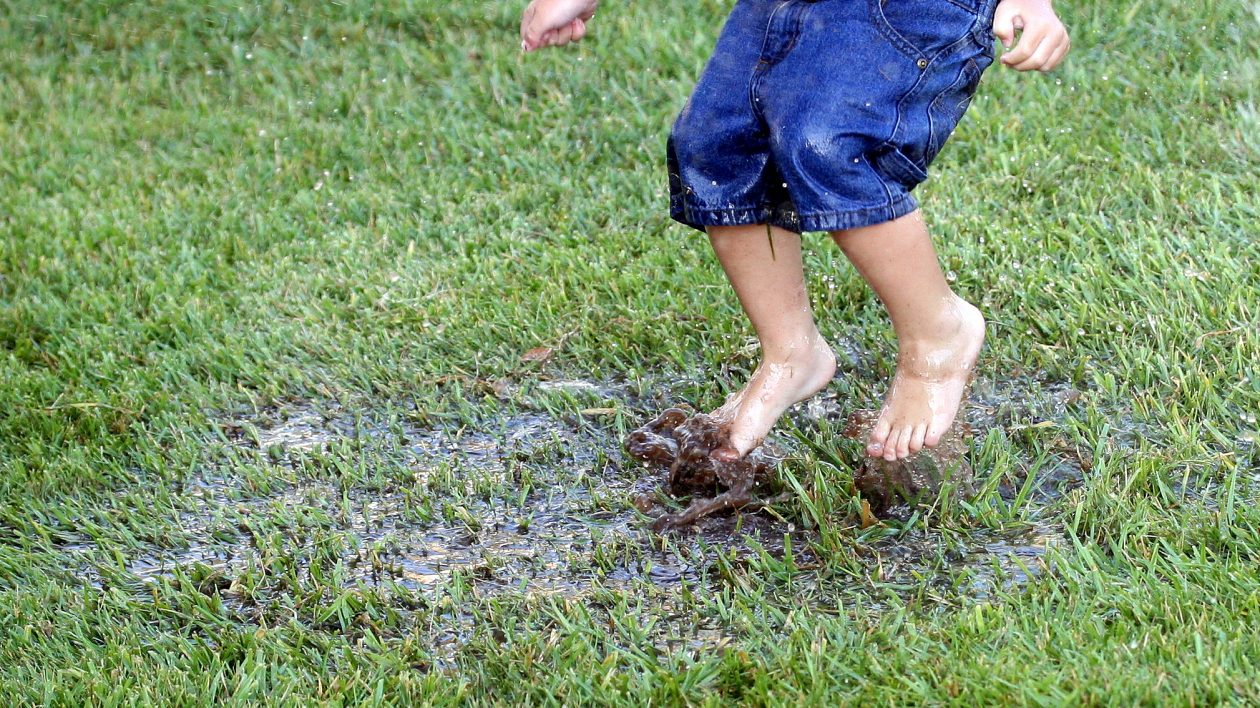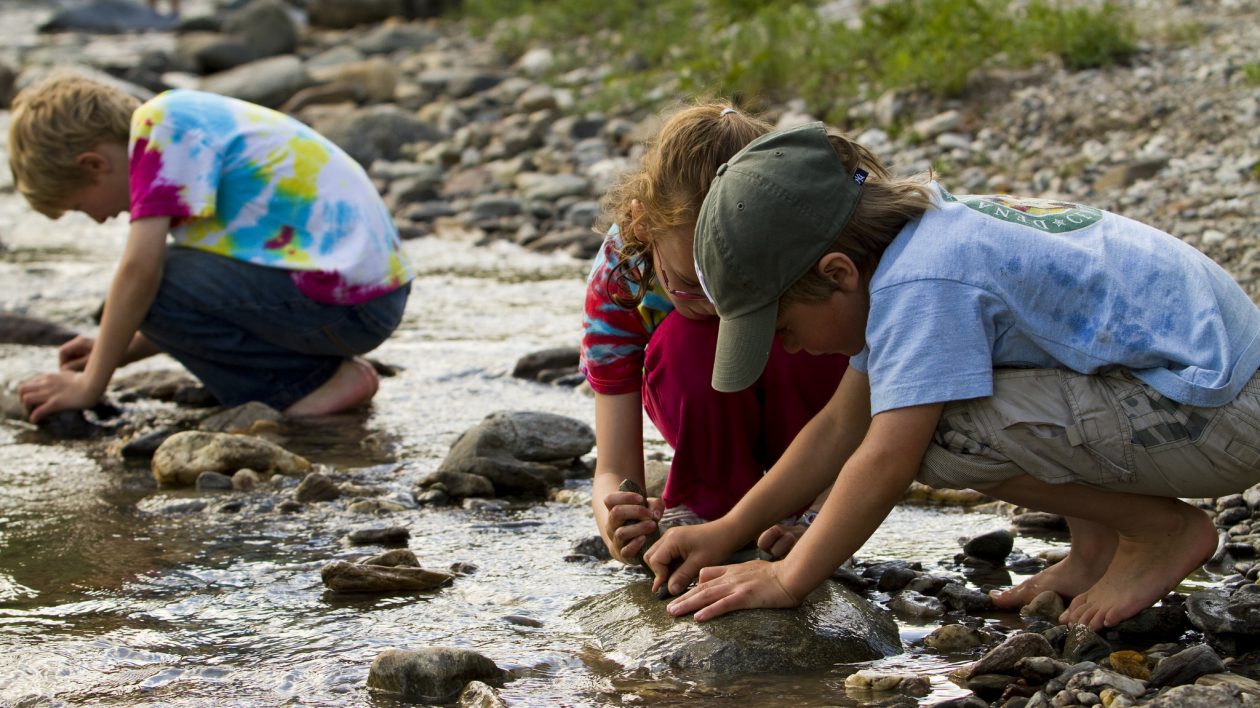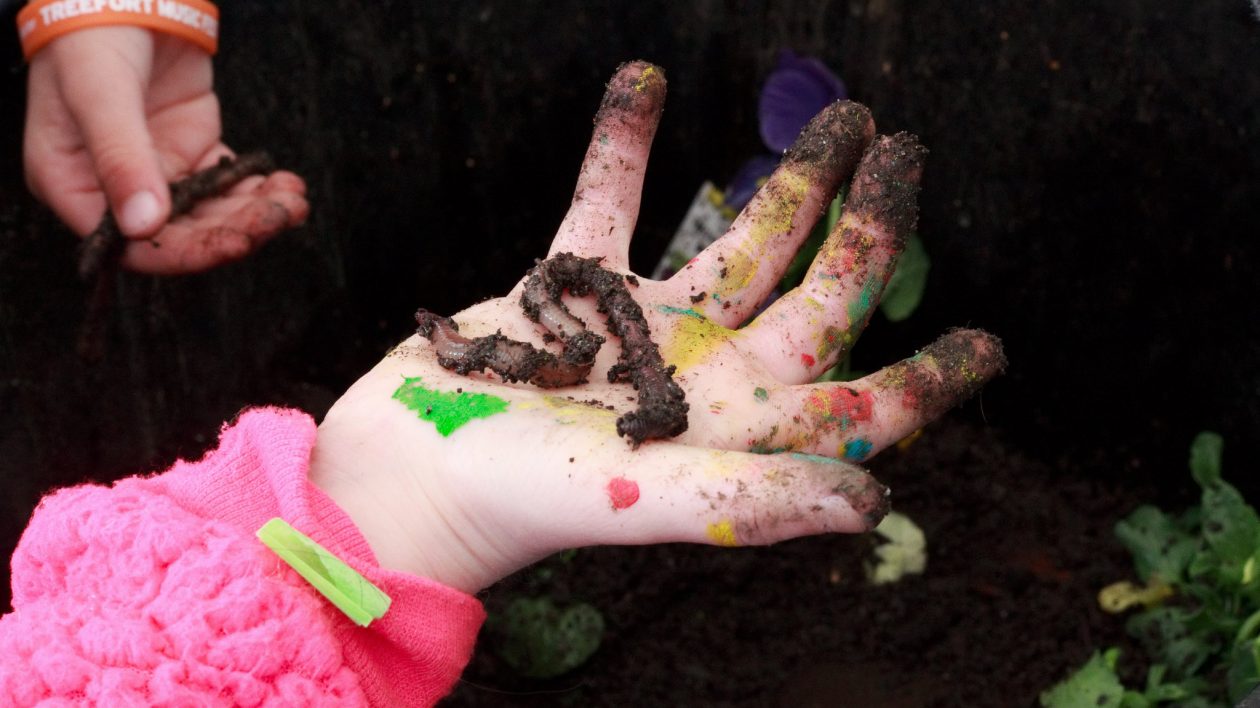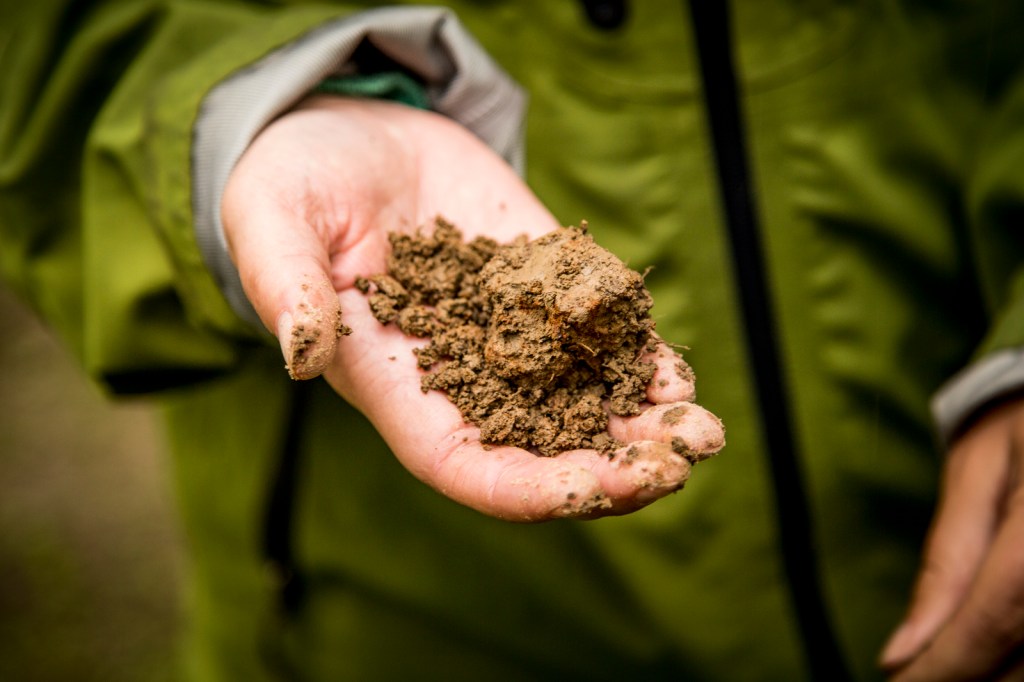The first time I took my infant daughter camping, I was ready to fulfill my vow to be the mom who let her kid happily coat herself in dirt. But as I scanned the ground holding a crawling, slobbering baby, all I saw was goose poop. So much goose poop.
I drew the line. I wasn’t a germaphobe, but I also wasn’t going to let her put her hands – which would inevitably enter her mouth – on bird feces. Or any feces, for that matter.
As a parent in an era where half of my news feed cautions of the perils of living in an overly sanitized world and the other half highlights the dangers of flesh-eating bacteria, just how much exposure to soil are we supposed to give our children?
Plenty, according to most new research. But use some common sense.
The Value of Dirt
Humans evolved in caves and fields – not in sanitized homes, cars and schools. And our immune systems developed to find and suppress foreign invaders, growing stronger with each battle won.
It’s why exposing those immune systems to the environment is so critical, says Jack Gilbert, co-author of Dirt is Good: The Advantage of Germs for Your Child’s Developing Immune System.
Gilbert is also a professor of surgery and the director of the Microbiome Center at the University of Chicago. His book, co-authored with Rob Knight (the director of the Center for Microbiome Innovation at the University of California, San Diego), was written not as an anecdotal memoir for why kids should play outside, but an easy-to-read, scientific, question-and-answer session about bacteria, microbiomes and over-sanitization.
“My colleagues wanted to reduce the uncertainty that parents have when they’re doing these kinds of things early in life,” he says.
“We wanted to put a book together that had all of the information from experts – us — that can hopefully be trusted,” he says. “We don’t have an agenda. We’re not trying to sell anything. It seems like a good time to put a book together and help them make appropriate decisions based on actual evidence.”
The basic advice, as the book’s title suggests, is that humans need to be exposed to soil, dust, bacteria or germs, whatever you wish to call them, to become healthy, happy adults.

The Dangers of Keeping Kids Clean
Take, for example, a 2001 study out of Europe. Researchers surveyed thousands of parents of children 6 to 13 years old in rural areas of Austria, Germany and Switzerland. Farming and non-farming families answered questions about asthma, hay fever and atopic eczema and many gave blood samples to measure antibodies to common allergies.
The results were pretty clear: Kids exposed to stables from birth to 5 had the lowest frequency of asthma, hay fever and atopic sensitization (skin allergies or eczema).
“Keeping your kids too clean and away from healthy dirt and healthy animals seems to be a problem that triggers a wide range of immune-involved diseases not generally encountered among babies growing up in third-world villages,” reads an excerpt from Gilbert’s book.
“Of course, these children suffer from other problems: limited access to healthcare and often extremely high rates of maternal and child mortality. So scientists are trying to figure out a happy medium between excellent healthcare and lifestyle choices, which could influence whether you develop chronic diseases such as autoimmune conditions.”
A U.S. study funded largely by the National Institutes of Health looked at the differences between Amish children – who are exposed to farms from a very young age – and Hutterite children – who are kept separated from the farm. About 5 percent of Amish children had asthma and about 7 percent had allergies. In the Hutterite children, about 21 percent had asthma and 33 percent had allergies, despite similar genetic backgrounds in the two groups.
“The central premise is our bodies have evolved to interact with the natural environment. If our body doesn’t get exposed, things can go wrong. It can become over responsive in not a good way. It’s a way of thinking about what they will be exposed to and making sure they get the kind of exposure early in life,” Gilbert says.
So when should you start exposing your kids to dogs, farm animals and other natural, environmental elements?
“When they’re born.”

At The Very Least, Don’t Over-Sanitize
Martin Blaser, director of the Human Microbiome Program at New York University, doesn’t put as much stock in exposing kids to dirt to build their immune systems.
But “dirt,” at least dirt that doesn’t contain feces or dog pee, for example, also won’t do any harm. And real harm can come from the country’s love-affair with antibiotics.
“I’m not against dirt, and believe me, I’m not a germaphobe,” says Blaser, who wrote the book Missing Microbes: How the Overuse of Antibiotics is Fueling Our Modern Plagues.
“I am against the over use of hand sanitizers, for sure,” he continues. “I think the most important microbes are the ones we evolved with, we humans evolved with, that you got from your mother, and she got from her mother all through time and you’ve given to your children. Those are the really important ones and my concern is we are losing them.”
Exposure to dirt – be it dust, germs or other natural elements – may play a role, but it’s “the shorter end of the stick.”
“Play in dirt, have fun… I think the health benefit may not be as much as some people think,” he says.
It’s a difference in emphasis, says Gilbert, who frequently collaborates with Blaser. All things being equal – meaning, assuming there is not incredible overuse of antibiotics – microbial exposure matters.
“We have an overwhelming body of evidence that under certain circumstances it can be beneficial. If you brought up a child in a very sterile environment, their immune systems are more likely to develop in a way different to what we would consider to be appropriate for robust human health,” Gilbert says.

Don’t Sweat the Small Stuff
Do flesh-eating bacteria exist? Yes.
Do dangerous parasites exist? Yes.
But instead of functioning off of emotion, use some probabilities to guide your parenting. The chance of dying by falling in the U.S. in 2016 was one in 119, according to the National Safety Council. In comparison, the probability of dying by being struck by lightning was one in 114,195 and the chance of dying by flesh-eating bacteria, well, it didn’t make the list.
What is the chance of something bad happening if we live in an overly sanitized world where we’ve isolated the body from any microbial exposure?
We can’t know for sure, Gilbert says, but likely quite high.
“We’ve never said there aren’t dangers in this world. You have to be careful… Most people want written rules and guidelines about what they can and cannot do. Don’t be stupid, think about what is going on, but let’s not go overboard,” he says.
So let them play in the dirt. If their hands end up in their mouths, or some of the dirt ends up in their mouths, keep an eye on them. If they develop a rash or fever, take them to a doctor. If they don’t, they’re probably fine.
“Take them for walks in the woods… Take them to park. You can buy them a dog that will interact with them. Let them lick their faces,” he says.
Should they eat cat poop or raw chicken? No. Should they play with rotting carcasses? No. Should I have let my 6-month-old daughter crawl in a field of goose droppings? No. And I didn’t.
But this summer and fall, when we spent most weekends camping in forests across the West, she was routinely covered in dirt and dust, washed off most often when she played in our dog’s water bowl.
I cringed a little, and then cleaned her hands before dinner.




My mom always tells the story of me and my cousin that we’re just a few months apart. His mom was always mortified because we would go camping all the time and I was allowed to play in the dirt and literally eat mud. I had ear infections a lot and colic and she thought that might be the reason. By the time I was 3, I pretty much never got sick and didn’t have any allergies. My cousin, who was kept away as much as possible from “germs”, was and still is (in our 30’s) constantly sick and seems to be allergic to everything.
We raised, camels, lamas and horses I never missed one day of school through college. When it started my career they had to give me more vacations I never took my sick days I work with barn animals. I really believe being in dirty places made me never get sick I ‘broke bones put on cast, however never sick. I always keep clean my house is kept clean but I truly believe it is my fuzzy, furry, feathery kids keep me young. Happy life. My human children never get sick and for my husband it is told we all make him sick not physically but in all other ways. My husband is right here he says, “I would never trade any of it. I love being crazy sick especially when I have to pack for all 18 of us”. 18 is including the fuzzy, furry, feather and let’s not forget the most wonderful human in the universe always mom